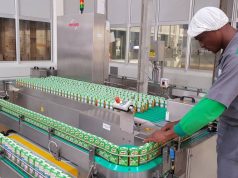Dear Reader,
In a way, Nigeria is finding reassurance for sustainable fiscal growth through improved tax collection after completing the modernisation of its tax law and adopting a framework that could ease collection and strengthen compliance.
Reliance on some tax rules as old as the period of British colonial administration in the country has kept Nigeria behind many forward-thinking peers, to the point that it is often mentioned among one of the world’s nations with the lowest tax-to-GDP ratio.
The limitation has not allowed opportunities to free up more sources of income needed to drive infrastructural expansion and fuel development. Addressing that has become an urgency now as the country longs to become a $1 trillion economy by 2030.
Nigeria’s tax as a share of GDP was the second weakest of the 36 African economies tracked by the Organisation for Economic Co-operation and Development for 2022. And the condition hasn’t fundamentally improved.
Constraints like evasion, multiple taxation and lack of a comprehensive database have widened the tax gap (revenue that the government should be collecting but is losing) to as high as 70 per cent.
President Bola Tinubu is bringing a new dimension to implementation. The team that worked out the reforms will have a part in executing them, said Taiwo Oyedele, who led the overhaul.
That is a breath of fresh air for Africa’s biggest oil producer, where implementing policies has never been as easy as drafting them.
The law exempts Nigerians earning a maximum of N108,000 monthly from PAYE, excludes businesses with an annual turnover of N100 million or less and with a total fixed assets of below N250 million from any form of tax.
Other wins include a cut to company income tax and a fairer distribution of tax receipts among subnationals. The former may provide some relief to banks, which accused Mr Oyedele and his fiscal policy and tax reforms committee of not adequately consulting them before proposing a 50 per cent windfall tax on devaluation-induced foreign exchange gains last year. The Senate later raised the rate outrageously to 70 per cent, handing just a widow’s mite to the lenders that generated the income.
For a nation of nearly 230 million with a GDP per capita as low as $1,596, the new tax law is vital to speeding up sluggish economic growth that has averaged below 4 per cent for years.
Also, Nigerian banks, which have been enjoying regulatory forbearance from the central bank in 2020 after COVID triggered a spike in non-performing loans, got a tall order to stop dividend payment, investment in international subsidiaries and directors’ bonus until they exit the position.
READ ALSO:
Access Holdings, Zenith and Fidelity have committed to regularising their books by June end, while First Holdco and FCMB Group have announced plans to do so in the second half of the year.
In the energy sector, in a bold move that will revolutionise fuel supply in Nigeria, Dangote Refinery, Africa’s largest oil refiner, is cutting off depot owners and other middlemen from the supply chain to make delivery to retail stations timely and seamless. It is embarking on a direct distribution of petroleum products to filling stations.
With fewer players in the delivery process, the move is set to make fuel cheaper at the pump, freeing it from hoarding by depot and tank farm operators and from other forms of racketeering that have created artificial scarcity and long queues on the street for years. A total of 4,000 CNG-powered trucks have been arranged for kick-off in August, while an incentive in the form of a two-week credit facility is on offer to marketers wanting to buy at least half a million litres at a go.
Key economic indicators
Monetary policy rate: 27.5 per cent
Headline inflation (May): 23 per cent, down from 23.7
Purchasing manager index: 51.6 points, down from 52.7
Business performance index 113.6 points, down from 109.8
Read these and other business and economy stories on the Business news page of PREMIUM TIMES.
Support PREMIUM TIMES’ journalism of integrity and credibility
At Premium Times, we firmly believe in the importance of high-quality journalism. Recognizing that not everyone can afford costly news subscriptions, we are dedicated to delivering meticulously researched, fact-checked news that remains freely accessible to all.
Whether you turn to Premium Times for daily updates, in-depth investigations into pressing national issues, or entertaining trending stories, we value your readership.
It’s essential to acknowledge that news production incurs expenses, and we take pride in never placing our stories behind a prohibitive paywall.
Would you consider supporting us with a modest contribution on a monthly basis to help maintain our commitment to free, accessible news?
TEXT AD: Call Willie – +2348098788999









